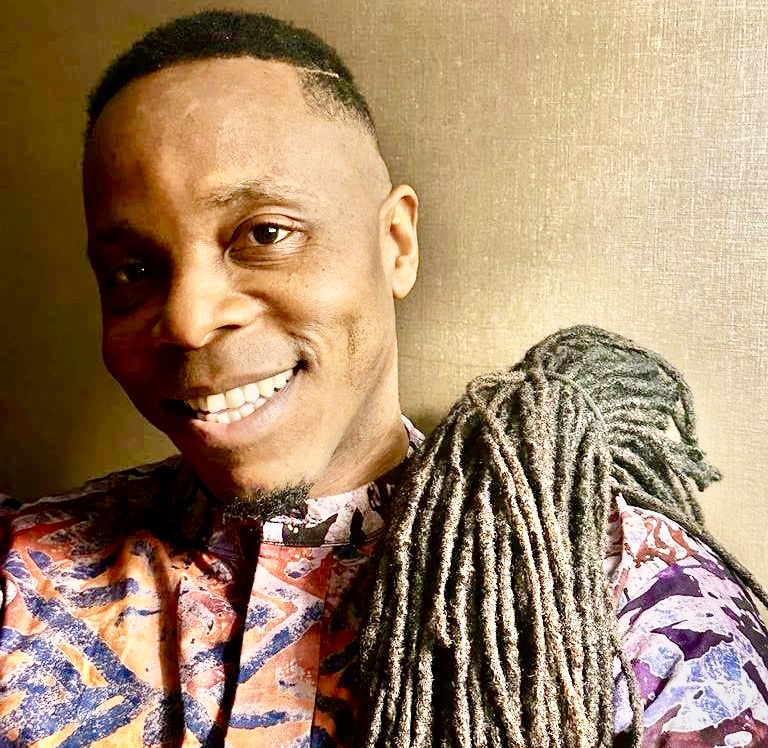Dr Moinina Sengeh, chief minister of Sierra Leone, after he cut his hair. (Kate Krontiris)By David Moinina Sengeh
FREETOWN, Sierra Leone — On Jan. 23, I represented my country’s government before the U.N. Security Council, where I called for a cease-fire in Gaza and justice for all parties. The following day, International Day of Education, I gave a lecture at Harvard’s Graduate School of Education on “radical inclusion,” a strategy for social justice outlined in my 2023 book with that title.
Then I did something that got people’s attention.
I cut my hair.
Specifically, I cut off the dreadlocks I had worn for 17 years.
Dreadlocks hadn’t been my hairstyle choice when I was growing up in Sierra Leone, because they were associated with drug users, school dropouts and others on the fringes of society. But I came to the United States to study at Harvard, where I became interested in soccer and music, and the locs seemed to fit. They had the added advantage of being simple — no weekly haircuts. They continued to be part of my image as I earned a PhD from MIT and then took a job as a scientist and, eventually, a manager at IBM Research Africa in Nairobi.
And they remained when I joined Sierra Leone’s government — first in 2018, as chief innovation officer, eventually as chief minister. The locs weren’t without issues. I’ve had doors closed in my face because people didn’t believe I was a minister, and opponents called me derogatory names during policy debates. While my boss, President Julius Maada Bio, never made a negative comment about my hair, some in government made snide remarks both to my face and behind my back. Others told me to respect our “culture” and called me a foreigner in my homeland.
But times were changing. More people started growing dreadlocks. Positive references to locs began appearing in public spaces, from youthful graffiti to inspirational sayings. Meanwhile, I was gaining recognition both in Sierra Leone and abroad as a spokesman for inclusive and transformative education.
Sometime in 2023, I began thinking about changing my hairstyle and, right after the Harvard talk, I decided it was time to do it. Perhaps because Harvard is where I started the locs in the first place. That evening, my cousin helped me find a barber, a Jamaican friend of his in Boston whose shop stayed open after 8 p.m.
As I heard the snipping sound of the scissors, I felt lighter — even relieved, though I wasn’t sure why. I gathered up each of the 103 locs of shorn hair. I might keep them safe for my grandkids. Or maybe donate them to an organization helping people with hair loss resulting from medical conditions.
Perhaps I shouldn’t have been surprised at what happened next. But I was. I was shocked at the public response: a mix of relief, disappointment, grief, anger and inspiration.
People from many places — not just Sierra Leone, but Togo, Rwanda, Scotland, Australia, the United States, and France — reached out in person and online to tell stories on how my hairstyle had influenced them. As a young, Black, African man wearing dreadlocks while occupying spaces of power typically filled with White, Western men with grey hair, they said, I had given them a different kind of hope. They said that it was great to hear someone call for justice before the Security Council, but what inspired them even more was I did it in locs.
Some stories came from officials (male and female) in other governments. One diplomat told me she finally grew dreadlocks because she had seen mine. Other ministers wrote that when they had seen me sit close to my president at global meetings with my hair flowing down my back, it encouraged them to display the difference in their cabinet rooms — not just in how they looked but also in their radical ideas.
Young professionals who thought their dreadlocks had finally gained the “blessing” of their parents and bosses sent me screenshots of those same people asking them when they would cut their hair now that I had cut mine.
Community leaders who had told me that my hair forced them to question many of their stereotypes reaffirmed a commitment to their new position: they still believed in radical inclusion.
Back in Sierra Leone, people who thought they knew me were shocked when they couldn’t recognize me. Close colleagues and family members couldn’t hide their amusement. Meanwhile, the social media chatter over my hairstyle went on.
So much emotion over one small, personal decision.
But why did I cut my hair? Everyone keeps asking. Am I declaring my intent to run for president? No, I’m not. (On the contrary, I think a president with dreadlocks would be very cool.) The answer is simple: I am not my hair. I am me, as you are you. My locs didn’t start as a public statement, though that became loud enough over the years. I just liked them. Now, I like my short, simple hair that doesn’t make any statement. I like no longer being easily recognized in a crowd.
I am me — a hip-hop-rapping, pick-up-soccer-playing politician who travels Sierra Leone, and the world, advocating radical inclusion. And I doubt my next hairstyle will change that.
David Moinina Sengeh is the chief minister of Sierra Leone.
Note: This article was originally published by the Washington Post
